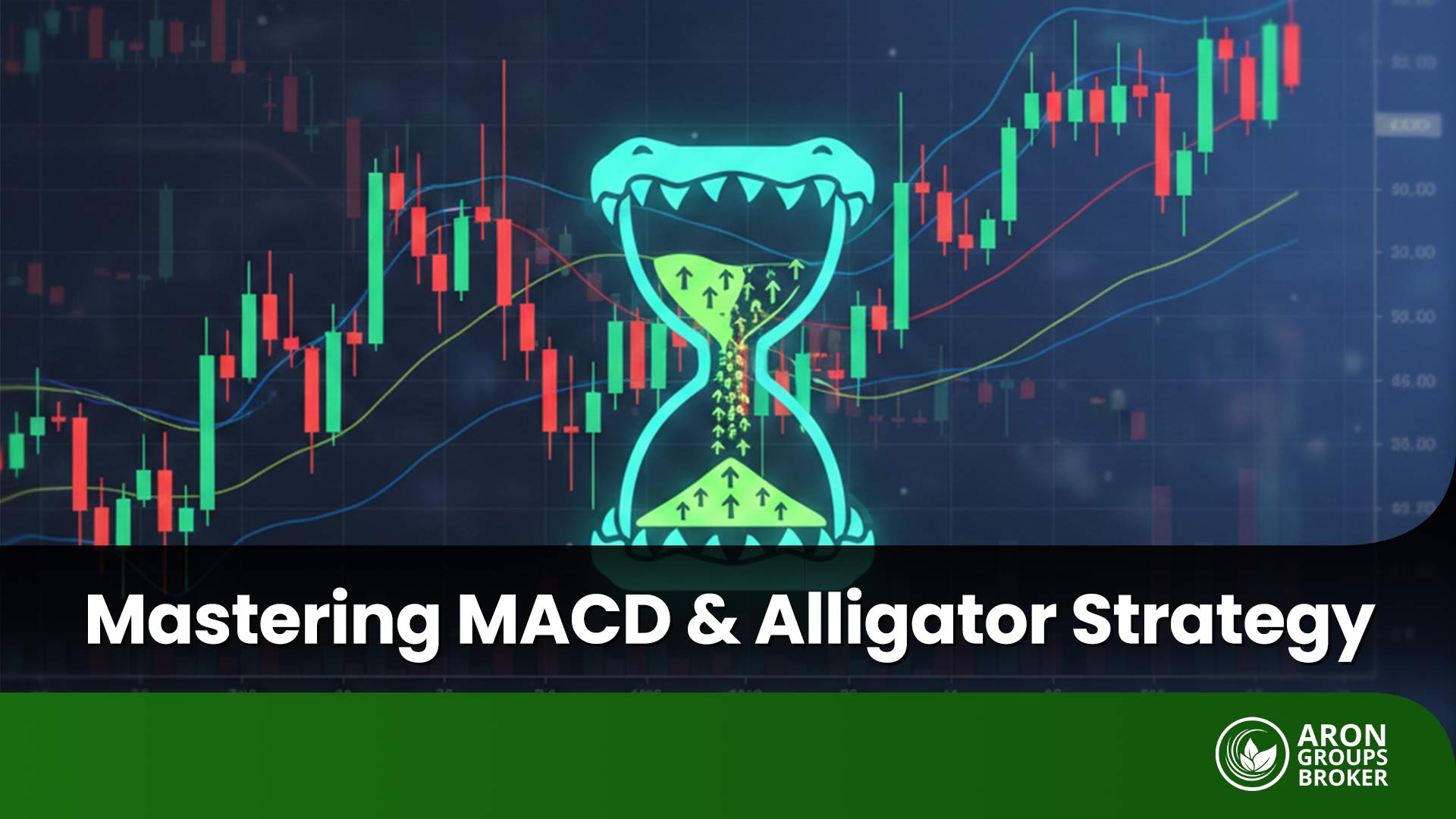If you’re interested in trading forex, you need to know that forex is a highly volatile Market that is open 5 days a week for 24 hours. The daily trade volume of this Market is about 5 trillion dollars. Big names are participating in forex, including institutions and major Banks. That is why it is often said that the odds of being so consistently profitable and succeeding in the forest Market are very slim. In fact, if you dig deep enough, you will find out that more than 90% of traders are bound to face failure.
Then so lies in the fact that many traders don’t actually comprehend the Forex Market; they are doomed to make the same mistakes again and again. Many traders do not understand the idea of trading in forex, and they don’t see the big picture. We at Aron Groups understand that the first 6 to 12 months of Forex Trading can be daunting for newcomers. So, we have decided to provide you with a complete guide on the biggest reasons why traders might be losing money. Stay tuned to get back on the right track to Forest trading success because the following information is something that you’re going to want to commit to memory.
Table of Contents
Common challenges when trading forex
The first months of trading in forex is a complex journey in which you need to get up to speed in a pretty quick fashion in order to succeed.
There are many challenges you might face starting to trade in forex that might make it impossible to grasp the whole idea of Forex trading. In many cases, challenges you face or a combination of mental and circumstantial factors, which we are going to touch on in the following.
Psychology called factors
Believe it or not, more than 90% of traders lose their money in the first two months. Remember that Forex is unforgivable, and that is why many consider Forex trading as a get-rich-quick scheme because not everyone can make money out of forex. People who rely on luck or greed cannot succeed in forex.
Some traders take huge risks from the beginning, and they think those who do not take big risks are afraid and are not worthy of big rewards. You might even win for a trade or two, but after a while, you will encounter the consequence of rushing into the market without thinking it through. If you are pushing the limits, trying to open high-risk positions, you are in trouble. Remember that the combination of Luck and greed is dangerous and can wipe out your entire capital.
On the other hand, when talking about psychological factors, we couldn’t ignore the fear. On the opposite side, traders were acting out of greed or traders who didn’t act out of fear. Remember that forex is always involved with risk. In order to be a consistently profitable trader, you need to manage risks in forex and overcome psychological barriers.
Financial factors
I know that forex is a complex Market. You need to learn more about the nature of the market in order to not be surprised by unprecedented volatility.
On the other hand, you need to be careful about budgeting. In fact, you need to determine the amount of money you’re willing to invest in each trade; otherwise, in case of failure, you will be left with nothing to enter another position. This is the destiny of many traders in forex: people who have put everything they had in a single high-risk position and lost everything they had. They are those who think forex is a fraud just because they don’t know how to use it.

Environmental factors
In order to be a consistently profitable traitor, you need to be consistent and disciplined. Take it seriously; you need to consider how much time you are able to commit to Forest trading. You need to think about trading around the clock or trade around work commitments. On the other hand, you need to ask yourself why you are interested in forex at all. Are you planning to double your capital or get rich as quickly as possible?
Starting to trade in forex, you will be bombarded with terms and complex concepts. In order to understand the market, you need to educate yourself and learn as much as you can to not cut up in the complexity of terminologies.
Why do traders lose money?
Now that we have talked about common challenges every trader faces, we need to talk about certain mistakes that might keep traders from achieving their investment goals.
1. Trading without discipline
The first and most important reason Traders lose money when participating in forex is not having discipline. Take it seriously. Forex is a business, not a hobby, so the biggest mistake you can make is to let emotion control your decisions. In order to be a consistently successful Forex trader, you will suffer many small losses to enjoy a few big wins.
You should be strong enough to emotionally handle consecutive losses. A professional is a patient and confident trader who does not try to beat the market and would never give in to fear and greed because he knows these emotions only cut winners short.
2. Trading without a plan
No matter what type of market you’re trying to participate in, the first step is to create and follow a trading plan. If you fail to plan, you are doomed to fail. Even the most professional and successful trader works within a documented plan that includes risk management rules and specifies the expected return on investment. You need a thorough strategy that helps you enter at the right time and exit before it’s too late. Without having a plan, you’re selling yourself short in what you can accomplish in the Forex Market.
3. Not adapting to the market.
Don’t wait for the last moment; in order to be a successful trader, you need to create a plan for every trade before the market opens. You need to predict the potential Market situation to reduce the risk of large and unexpected losses. Remember that the market is changing all the time, providing you with new opportunities to invest. In order to be a successful Trader, you need to adapt yourself quickly to market changes and modify your strategies to conform to them. Professional traders have always planned for unpredictable situations so that they stay ahead of the market and continuously find new and creative ways to profit from the evolving market.
To address the root causes of failure, you should consider the principles outlined in 5 Great Points to Develop an Effective Trading Psychology.

4. Experiment through trial and error
In this case, you are planning to learn the market truly, but let’s face it, trading in the real market is the most expensive way to learn to trade the currency Market. Learning from your mistake is not a perfect way to learn trading in forex. The forex is not just like the equity Market or any other market; the volatility is high, and the most effective way to become a successful trader is to access the experience of successful traders. On the other hand, you can always use a demo account to test your trading ideas and strategies in a safe environment. and if you are really willing to start trading in forex right away, you can start copy trading and perfect your skills in the shadow of all the successful traders.
5. Unrealistic expectations
If you think forex is a perfect place to make you rich as quickly as possible, just forget about it because no matter what everyone says, trading in forex is not a get-rich-quick scheme. In order to become a successful trader, you need to work hard and learn more about the market and its behavior. Even the most successful traders tried hard to master these strategies. Don’t think about unrealistic games; try to stick to your trading strategy and learn the market bit by bit to be a consistently profitable trade.
6. Poor risk management
One of the most important things most traders forget to think about is to focus on risk management. You need writing as a strategy, but without thinking about risk management, your strategies will fail.
You should know how much of your investment capital is at risk at any given time; you should think about the amount of risk you are willing to take on each trade. On the other hand, you need to think about diversification and create a diversified portfolio to minimize risk.
read more: Risk Management in Forex Copy Trading
7. Over Trading
In many cases, traders are so excited to be in the Forex market that they just want to start, and in many cases, they are trading too often, which can go on to wreak havoc with any trading strategy.
Newcomers act in the moment, and they trade really fast, and it is sometimes impossible to avoid losses. So, it is really important to avoid over-trading. You should take steps to do so before you even load up your chosen trading platform. In many cases, traders try to open numerous positions to compensate for their previous losses, but they are doomed to experience the same failure again and again because they don’t stop for a moment to think about what they are doing. They just pray because they think in order to be a successful Trader, you need to be strong and open a large number of positions to win after all. But the fact is, to be a successful trader, you need to be disciplined, and you need to think through everything and consider the perfect time to enter and exit a position. You need to think about the amount of risk you’re willing to take for each position, and you should think about your ultimate investment goal.

8. Not having a trading strategy.
One of the painful and terrifying ideas when trading forex is trading without a trading strategy. A trading strategy is a plan that is a road map that tells you when to stop and when to see the moment and open another position. Even the most professional Traders have numerous strategies at hand to use in different markets. You should consider your own personality and your preferred trading style to choose a reliable trading strategy. Searching online, you will find a number of trading strategies with the label of the best strategy, but there is nothing such as the best strategy out there because even the perfect strategy might not work for you. On the other hand, maybe the worth strategy for another person might be a perfect one for you just because you are two different people with two different attitudes.
9. Strange market conditions
The Forex Market is not like any other Market. It is a Highway all the time Market with high liquidity and a large number of traders. That is why there is nothing like a perfect Forex trading strategy out there because it is impossible to create a plan that works in any condition, budget, and approach to risk. But not many traders grasp this. Sometimes, traders opt to change between the strategies in the hope that something sticks. You should be willing to change your approach because the market is instantly changing, and you need a single strategy that has the power to acclimatize to new risks as and when needed. Don’t forget that its writing strategy is a foundation. As a trader, it is up to you to adjust the trading strategy according to the market condition to ensure its ongoing success.
10. Insufficient capital
To be a successful Trader on Forex, you need money to return on your investment. Forex Trading accounts provide you with the ability to use leverage, which means you will be able to trade with limited starting capital and acquire substantial profits.
Don’t forget that in order to benefit from leverage, you need to have a solid risk management strategy in place. In order to be a long-term profitable Trader, you need to have a significant amount of money in your trading account, which will definitely lower the psychological pressure that comes with trading.
11. Leverage is not a joke.
Last but not least, we should talk about leverage. One of the most fascinating advantages of trading Forex is leverage. Which means you can use the broker’s money to trade larger positions. Leverage will multiply your profit and losses at the same time. If you’re not familiar with the market conditions and if you’re not familiar with trading the strategies, you should never think about using leverage because it will wipe out your entire capital and leave you with nothing to start over.































